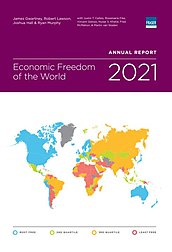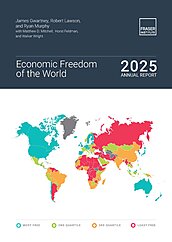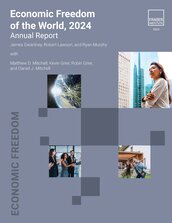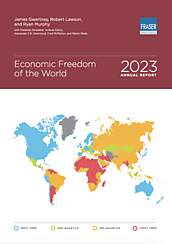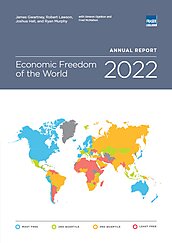This is the 25th edition of Economic Freedom of the World and this year’s publication ranks 165 countries and territories for 2019, the most recent year for which data are available. Hong Kong and Singapore retain the top two positions with a score of 8.91 and 8.81 out of 10, respectively. The authors note that the interventions of the Chinese government in 2019 and 2020 will likely have a negative impact on Hong Kong’s score going forward.
Economic Freedom of the World
Economic Freedom of the World
